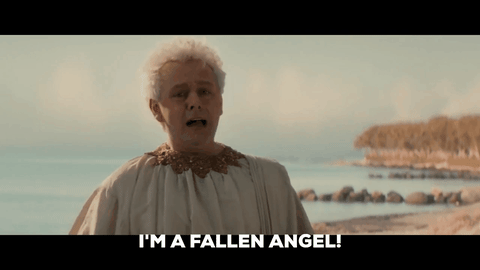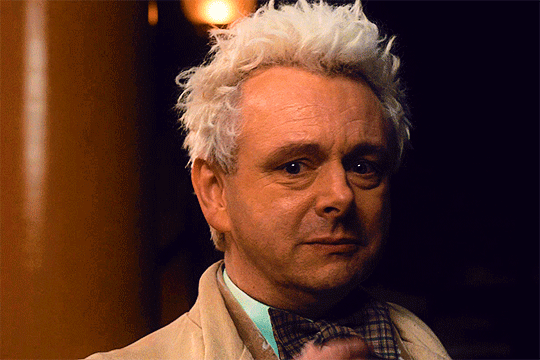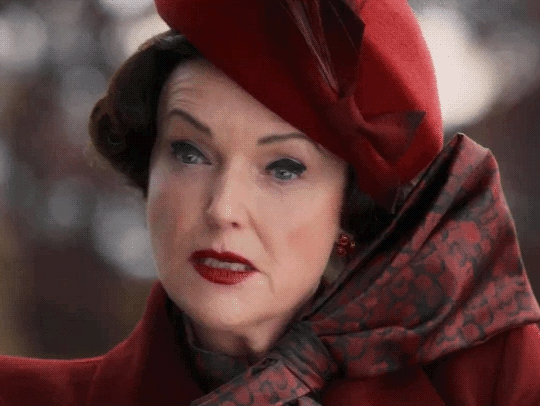#Lord Jim
Explore tagged Tumblr posts
Text
Parallels between Lord Jim and Good Omens (2)
I have rewatched GO2 at least 10 times now (still counting, obvsly), and every time I notice new easter eggs that emerge from the massive web of intertextuality that Neil Gaiman created for us here.
So today, I wanted to focus on the way Aziraphale came up with the “undercover” name “Jim” for Gabriel. He read it on the spine of a book: Lord Jim.


That book was written by Joseph Conrad (a Polish-British writer with dubious ideas about colonialism) and published in 1900. The plot basically follows the life of a young idealistic seaman called Jim who has to defend himself in a trial that concerns a sinking ship which he and other members of the crew abandoned in a storm, leaving it and the helpless passengers to their fate. The ship did not sink in the end, and he was the only member of the crew who was held accountable for his deeds by stripping him off his naval certificate. The trial is where he meets the narrator of the story, Marlow, who is strangely intrigued by the young man, who seems to be engulfed by guilt and shame over his morally wrong decision to leave the boat. The narrator tries to help Jim to his feet and lands him a job as a post manager at some remote colonial outpost. There he becomes a hero by capturing a local bandit. Later he falls victim to a scheme against him, and a pirate raids a neighbouring community and kills the son of their chief, Jim’s close friend. Jim then goes there, and the chief shoots him as a revenge for his son.
I mean, the most obvious parallel is that Gabriel gets named after Jim. He, too, abandoned his ship (Heaven; and the question here is, did he know it might be a sinking ship as well?) and was put on trial and lost his position as archangel before he came to Aziraphale for help. But that’s not all there is to it.
Let us start with the formal (concerning style and structure) aspects:
narrative structure:
“Marlow has complete control over the story … and he exercises his power in increasingly complicated ways. Time is broken up: in a single paragraph of narration, Marlow will reference the past, the present, and the future. By manipulating the flow of the narrative, Marlow is able to create juxtapositions and contrasts that highlight particular aspects of the story. He is a master at withholding information …” (Source: Sparknotes)
As I have already discussed in another post, this is more or less how narrative structure works in GO, too (S2 maybe more than S1, but this still applies to both). We get minisodes from the past that directly reference and juxtapose situations in the story that takes place in the present. Take, for example, the Job minisode, which gives us information about the development of Crowley and Aziraphale’s relationship, but we also see how devastating and hard it was for Aziraphale to realise that sometimes he had to lie (or do something considered wrong in heaven) to do the morally right thing. This sequence is juxtaposed with the relative ease he exhibits in the present day when he has to lie to heaven on a regular basis (in this case, about the miracle and hiding Gabriel, which is kind of a big lie, too). The show also plays with our understanding and expectations of how time works, as S2 starts with a scene that takes place “before the beginning,” which undermines dramatic structure as it has been known and accepted since Aristotle. It is also interesting to note that in S1, we have a strong sense of an almighty narrator, since god herself is narrating the whole time and she sure lets us know that she is playing her own ineffable game here. In S2, however, we don’t have a clear narrative voice. This might make it seem like the narration is more neutral or less meddled with, but in reality, it just makes things even less reliable and situations more ambiguous, as we have no single voice to interpret them for us. Someone is definitely “withholding information” here, and I guess we’ll have to wait for S3 to get the full picture.
language/style:
“Marlow constantly ponders the "message"--the meaning of Jim's story. His language is dense with terms like "inscrutable" and "inexplicable," words that denote imprecision and indecipherability, but which also possess a certain quality of uncertainty in themselves, as words. He struggles to name things, and is often reduced to wondering if there even is a meaning to Jim's story and his fascination with it. Sometimes he concludes that the meaning is an "enigma"; sometimes he decides there is no meaning to be found at all. Words are constantly being contested in this novel; at least three major episodes center around the misinterpretation of a single spoken word.” (Source: Sparknotes)
I mean, “inscrutable” and “inexplicable”? Why not just call it “ineffable”? I also love how Crowley seems to wonder about the meaning of things (especially the distinction between “good” and “bad”), as one of the first things we here him say in S2 is something like: “Do you ever ask yourself what’s the point. I mean angels, demons, heaven, hell … it all seems a bit … point … less.” And obviously, the whole show is full of misinterpretations of words (e.g., “what does your exactly mean, exactly? I feel like my exactly and your exactly are different exactlies”), or, as we are all painfully aware, a whole way of communicating with one another (“aim for my mouth, but shoot past my ear”).
Now for some similarities concerning informal (aka content) aspects:
moral balance and “naïve heroism���:
“Even more tortured is the analysis of idealism and heroism that lies at the center of Lord Jim. Jim is a young man who enters the world motivated primarily by fantasies of daring and noble deeds lifted from cheap novels. His ideals break down, however, in the face of real danger; they are, in fact, untenable when applied to any form of reality.” (Source: Sparnotes)
That sounds like both Crowley and Aziraphale in a way. They both set out as naïve idealists, and both of them learn (Crowley earlier and faster that Aziraphale) that their (heavenly) ideals do not hold in the complex reality of life. A lot of what we see in S2 is Aziraphale coming to terms with accepting that doing the “right thing” on earth often involves breaking his heavenly rules and allowing for “shades of grey.”

struggling to comprehend own identity and moral consequences of own actions:
Both the narrator, Marlow, and the protagonist of his tale, Jim, are trying to figure out their identity. Marlow seems to tell the story mainly to kind of make sense of identity itself but also of him personally, while Jim tries to make amends for his morally wrong behaviour and tries to manifest his identity (as a hero) through action.
In GO2, we have a lot of identity struggles and questions of “who am I?”: Jim the amnesiac angel is the most blatantly obvious case, but we also have Aziraphale negotiating his identity constantly, e.g., in the Job episode when he asks “Then what am I?” after having lied to heaven for the first time . And I mean Crowley is just on another level of liminal identity entirely, isn’t he?

As a bonus (and I am probably going overboard here, but well), this is the description of Jim’s death:
“Then with his hand over his lips he fell forward, dead.”
The imagery reminds me of something…ahhh yes:

Feel free to add your thoughts in the tags or comments!
#good omens#good omens s2#aziraphale#ineffable husbands#crowley#go2#good omens 2#good omens meta#neil gaiman#crowley x aziraphale#meta#lord jim#go2 meta#jimmmm short for gabriel#thank you neil gaiman
157 notes
·
View notes
Text


Peter O'Toole and Steve McQueen interview in a Film Star magazine from July 2nd 1964 Yugoslavia
#peter o'toole#steve mcqueen#lord jim#lawrence of arabia#interview#yugoslavia#1960s#1960s movies#1960s actors#becket 1964#old magazines#history#film history#vintage actor
19 notes
·
View notes
Text

Started reading Lord Jim because of its prominence in the Good Omens season two posters. Little did I expect the first line of dialogue:

you mean

gif by @crowleyanthonys
(WHAT IS UP, NEIL GAIMAN? IS IT A BIG FUCKING STORM? IS SOMEONE'S METTLE GOING TO BE TESTED AND FOUND WANTING? ARE THEY GOING TO TRY FOR REDEMPTION? I'M ONLY IN CHAPTER FUCKING THREE)
#good omens#good omens season two#gos2#good omens trailer#good omens poster#lord jim#its a good book btw I'm rrally enjoying it
119 notes
·
View notes
Text

Peter O'Toole on the set of Lord Jim
* caption * Peter O'Toole, who plays the title role in LORD JIM, makes like Tarzan during rehearsal for the Columbia film on location in the jungles of northern Cambodia. O'Toole later utilized the one-handed rope climbing technique to collect fresh coconuts.
Lord Jim (1965) directed by Richard Brooks
Peter O'Toole as Lord Jim
13 notes
·
View notes
Text

“We recall the inadequacy of "facts" at Jim's trial as well as Conrad's characterization of a man like Chester, who, with no blue guitar, sees things as they are. And elsewhere in Lord Jim Marlow, as storyteller, argues for the higher value of "the truth disclosed in a moment of illusion" as opposed to mere factual truth. Marlow's lie is the ultimate act of renunciation on the part of an ascetic who scorns the created world, and it is the ultimate service to the higher truth beyond creation. The ultimate truth is served by the penultimate lie. An appreciation of this point depends on remembering that the god of light is, to the gnostic view, entirely "other," an alien to the laws governing creation. The gnostics, in fact, inherited the Buddhist notion that creation should be viewed as a dream from which one seeks release. In this spirit Marlow dismisses the "truth" about Kurtz, thus protecting the light of innocence that radiates from his Intended—and thus fulfilling his mission as saviour figure, truly becoming the "kind stranger" of gnostic myth.” - Bruce Henricksen, ‘Heart of Darkness and the Gnostic Myth’

#conrad#joseph conrad#heart of darkness#apocalypse now#tim roth#gnostic#gnosticism#gnostic christianity#stranger#allogenes#lie#truth#renunciation#scorn#myth#lord jim#marlow#nicolas roeg
14 notes
·
View notes
Text
currently shopping around and look what I found

#debating on getting it#good omens follows me wherever I go#this store has the most random shit#found a x-files graphic novel in here once#it is now a prized possession#good omens#good omens 2#lord jim#aziraphale#crowley#good ineffable omens#good omens gabriel
20 notes
·
View notes
Text
Vanity plays lurid tricks with our memory.
Lord Jim by Joseph Conrad
7 notes
·
View notes
Photo

Lord Jim, Italian lobby card (fotobusta), 1965
#submission#Lord Jim#Richard Brooks#Lobby Cards#Lobby Card#Fotobusta#Fotobuste#Peter O'Toole#Eli Wallach
4 notes
·
View notes
Text
Okay, so, does the book selection where we got the name Jim matter at all? Look at this screenshot of what Wikipedia says about the book in the "Critical Interpretation" section.
Isn't this interesting?
Lord Jim by Joseph Conrad

13 notes
·
View notes
Text

LORD JIM: A TALE by Joseph Conrad. (New Haven: Yale University Press for The Limited Editions Club, 1959) Lithographed illustrations by Lynd Ward — some in color. Binding by Bayntun-Riviere (1967)
source
#beautiful books#book blog#books books books#book cover#books#vintage books#illustrated book#joseph conrad#lynd ward#lord jim#bayntun riviere#book design#book binding
18 notes
·
View notes
Photo

Kookaburra (Dacelo novaeguineae) taking in the bushfire devastation in Wallabi Point, New South Wales, Australia Photo: Adam Stevenson (2023) ::: [Scott Horton]
* * * *
"A man that is born falls into a dream like a man who falls into the sea. If he tries to climb out into the air as inexperienced people endeavor to do, he drowns...The way is to the destructive element submit yourself, and with the exertions of your hands and feet in the water make the deep, deep sea keep you up...In the destructive element immerse."
~ Joseph Conrad, 'Lord Jim'
#Joseph Conrad#Lord Jim#Adam Stevenson#Scott Horton#Kookaburra#bushfire devastation#New South wales Australia#quotes
18 notes
·
View notes
Quote
The human heart is vast enough to contain all the world.
Joseph Conrad, Lord Jim
14 notes
·
View notes
Text
Remember Lord Jim?

Anyway this is what happens at the end:
But we can see him, an obscure conqueror of fame, tearing himself out of the arms of a jealous love at the sign, at the call of his exalted egoism.
He goes away from a living woman to celebrate his pitiless wedding with a shadowy ideal of conduct. Is he satisfied—quite, now, I wonder?
#It's a good book#it grapples with what it is to be good and how are we to live#the problem of being romantic#and can one ever be forgiven#this is about both Crowley and Aziraphale btw#neither of them will give up their Principles to be happy#good omens#good omens season 2#gos2 spoilers#ineffable husbands#lord jim#lord jim spoilers
9 notes
·
View notes
Text

Peter O'Toole on the set of Lord Jim
Lord Jim (1965) directed by Richard Brooks
Peter O'Toole as Lord Jim
*** https://myfavoritepeterotoole.tumblr.com/post/112516928982/peter-otoole-lord-jim1965-directed-by
21 notes
·
View notes
Text

Lord Jim September 1965
5 notes
·
View notes
Text

0 notes